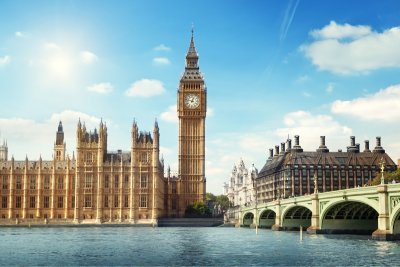 Cropland in the countryside. Photo credit: pixabay.
Cropland in the countryside. Photo credit: pixabay.

Sustain part of an alliance telling government to drop secrecy provision from Environment Bill
Sustain is a co-signatory of a letter to the Environment Secretary calling on the government to drop the secrecy provision from the Environment (Principles and Governance) Bill.
The full text of the letter:
The Rt Hon Theresa Villiers
Secretary of State for Environment, Food & Rural Affairs Seacole Building
2 Marsham Street
London SW1P 4DF
8 August 2019
Dear Secretary of State,
We are writing to express our concern at the proposed prohibition on disclosure of information in the draft Environment (Principles and Governance) Bill, published in December 2018.1
The draft bill is partly intended to replicate the scrutiny functions of the European Commission and European Environment Agency after Brexit. However, some of the new arrangements would be subject to more severe restrictions on the public’s right to information than currently apply under both UK and EU law. 2
The bill would establish the Office of Environmental Protection (OEP) whose functions would include investigating complaints of serious failure by public authorities to comply with environmental law.3
The OEP would normally have to make public the fact that it is investigating a public authority or has concluded that it has failed to comply with environmental law.4 However, the disclosure of large classes of related information would be restricted:
- The OEP would be prohibited from disclosing information obtained from a public authority under investigation unless the authority consented.5
- The public authority being investigated would be prohibited from disclosing correspondence or formal notices from the OEP unless the OEP consented.6
- The OEP would be required to copy its correspondence with a public authority to the relevant minister but could not disclose the minister’s reply without the minister’s consent.7
The OEP would be free to publish its final investigation report, but could not be required to release it.
The restrictions would continue after an investigation was over and any enforcement action concluded. The approach is wholly at odds with the public’s right to information under the Environmental Information Regulations (EIR).
If the purpose is to protect the OEP’s ability to carry out investigations, the prohibition is not necessary. Regulation 12(5)(b) of the EIR provides that ‘a public authority may refuse to disclose information to the extent that its disclosure would adversely affect...the course of justice, the ability of a person to receive a fair trial or the ability of a public authority to conduct an enquiry of a criminal or disciplinary nature’.
This exception is not absolute. The EIR require that: (a) disclosure must be shown to have an ‘adverse effect’ on the authority’s ability to conduct an enquiry (b) the exception must be interpreted in a ‘restrictive way’,8 (c) a ‘presumption in favour of disclosure must be applied’9 and (d) the public interest in maintaining the exception must outweigh ‘the public interest in disclosing the information’.10
None of these important conditions would apply under the draft bill. If the OEP, public authority or minister (as the case may be) did not wish the information to be released, it would be withheld. There would be no need to show that disclosure would be harmful. The public interest in the information would be irrelevant. This would reverse decades of progress in opening up environmental information.
The provision would impose a degree of secrecy which does not apply to any other UK environmental regulator. The restriction would be even more onerous than that under Europe’s access regime. The right of access to European Commission documents excepts information about investigations unless there is an overriding public interest in disclosure.11 Moreover, the point of the restriction is to ensure that member states comply with their European treaty obligations, a consideration which will not apply to the UK after Brexit.
The prohibition raises a wider concern. Regulation 5(6) of the EIR provides that the right of access to environmental information cannot be restricted by any other law.12 The approach and effect of Regulation 5(6) should be continued in the Environment Bill and in any other future environmental legislation. However, as it stands, the draft bill appears to be in conflict with this important legal provision, potentially over-riding it. This represents a fundamental undermining of the EIR and a backwards step in environmental protections. Regulation 5(6) of the EIR must continue to apply to all legislation post-Brexit.
Clause 28 of the bill envisages a damaging and unjustified restriction on the public’s right to environmental information. We call on the government to omit it from the proposals.
Signed by:
Amnesty International UK Section ARTICLE 19
Bat Conservation Trust
Biofuelwatch
Buglife
Bumblebee Conservation Trust
Butterfly Conservation
Campaign for Freedom of Information
Campaign for National Parks
Campaign for the Protection of Rural Wales
Campaign to Protect Rural England
Clean Air in London
ClientEarth
Compassion in World Farming
Friends of the Earth
Global Justice Now
Global Witness
Good Law Project
Greenpeace
Guy Linley-Adams Solicitor
Law Centres Network
MySociety
National Union of Journalists
News Media Association
Open Rights Group
Renewable Energy Foundation
Royal Society for the Protection of Birds Salmon and Trout Conservation UK
Sustain
The Brexit Civil Society Alliance
The Ramblers
Transparency International UK
Trees for Cities
Unlock Democracy
Whale and Dolphin Conservation
Wild Justice
----------------------------------
1 https://assets.publishing.service.gov.uk/government/uploads/system/uploads/attachment_data/file/766849/draft- environment-bill-governance-principles.pdf
2 See: www.cfoi.org.uk/wp-content/uploads/2019/05/submission-on-the-draft-environment-principles-and-governance-bill.pdf 3 Draft Environment (Principles and Governance) Bill (hereafter ‘Draft Bill), clause 19(1)
4 Draft Bill, clause 29(1)
5 Draft Bill, clauses 28(1) and 28(2)(a)
6 Draft Bill, clauses 28(3) and 28(4)(a)
7 Draft Bill, clauses 24(1), 28(1)(b) and 28(2)(a)
8 This requirement is found Article 4(2) of the Aarhus Convention on Access To Information, Public Participation In Decision- Making And Access To Justice In Environmental Matters, which will continue to apply to the UK after Brexit,
9 EIR Regulation 12(2)
10 EIR Regulation 12(1)(b)
11 A public right of access to documents held by the European Commission, Council and Parliament exists under EC Regulation 1049/2001. One of the exceptions is found in the third indent of Article 4(2) which states: ‘The institutions shall refuse access to a document where disclosure would undermine the protection of...the purpose of inspections, investigations and audits. Although the General Court of the Court of Justice of the European Union has held that in relation to this exception a general presumption of confidentiality applies, the provision nevertheless allows access where ‘there is an overriding public interest in disclosure’. The Court of First Instance has held that for this exception to apply it must be ‘reasonably foreseeable’ that the protected interest would be undermined. Moreover, the protected interest ‘is not to protect the investigations as such, but...to induce the Member State concerned to comply with Community law’. Case T-36/04, Association de la presse international ASBL (API) v Commission of the European Communities.
12 Regulation 5(6) states ‘Any enactment or rule of law that would prevent the disclosure of information in accordance with these Regulations shall not apply’
Good Food Trade Campaign: Campaigning for good trade that benefits people and the planet at home and overseas.
Sustain
The Green House
244-254 Cambridge Heath Road
London E2 9DA
020 3559 6777
sustain@sustainweb.org
Sustain advocates food and agriculture policies and practices that enhance the health and welfare of people and animals, improve the working and living environment, promote equity and enrich society and culture.
© Sustain 2026
Registered charity (no. 1018643)
Data privacy & cookies
Icons by Icons8







